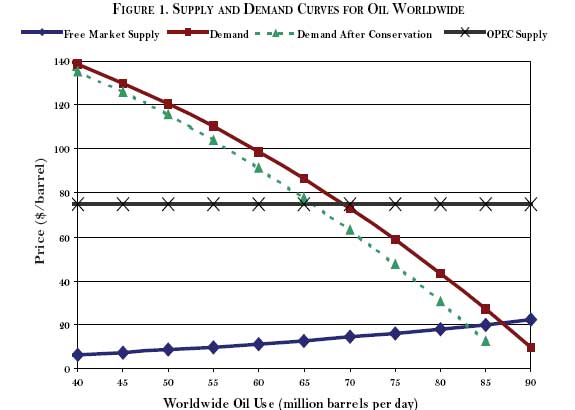Fortunately, ethanol is not required – basic methanol should be just fine, and methanol can be made from coal, natural gas, virtually any “biomass” (plants), even trash.
“The chemistry needed to dethrone oil is well understood. We can readily convert our available fuels into an alcohol supply bountiful enough to displace a large portion of the oil we import,” Zubrin adds. “The only problem is, we need to have cars and trucks that can use it.”

One Law Can Do the Trick
Other than upgrading some components to better withstand the more corroding effects of the alcohol-based fuels and adding some fuel sensor technology, there are very few changes needed to produce FFVs, Zubrin contends.
However, the automotive OEMs are unlikely to begin producing FFVs on their own, without certainty that there will be a market – and available fuel – for such vehicles. There would clearly be some costs to the automotive companies for engineering and tooling – but these additional costs are minor in the grand scheme of what we spend on oil.
Zubrin says the answer is a federal law that simply mandates that by a certain date, all vehicles sold (not just made) in the country will be FFVs – the same step Brazil took in 2003 with great success. The requirement could certainly be phased in over time as well – defining set percentages of FFV production minimums over some period of years.
“Within three years of such a mandate, there would be 50 million such FFVs on American roads,” Zubrin argues. “This will, in turn, force all automobile manufacturers abroad to switch to FFVs as well, thereby creating a huge global market and infrastructure for alcohol fuels.
It all just seems too easy, too logical – yet for unclear reasons, the idea has thus far gained little traction in Congress or other circles – but that was before the most recent fuel price explosion.
“In a game of chess, the struggle ends not with the taking of the enemy king, but with his entrapment. If we could engineer a liberation from oil, the enemy would be rendered helpless, and one way or another, the oil-for-terror game will be finished,” Zubrin concludes. “Call it checkmate. Call it victory.”
Is Zubrin’s plan as simple and as achievable as it sounds? Why isn’t it being pursued with more “energy?” Is there some flaw in the theory? Let us know your thoughts at the Feedback button below. |